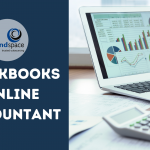COVID-19 challenges in commercial real estate audits
Most commercial estate is still going on with covid19’s impacts on their financial performance. As auditors, one tends to recognize the execution of financial statement audits for 2020 is going to be quite different from other years, and the commercial real estate market features several issues that one will have to be prepared for. Additionally, experts say that the main focus of the retail real estate audit is to feel the effects of the covid19 pandemic. The pandemic impact on the economic part tends to vary from property types, with most acute being seen in initial claims of retail and hospitality industries. Experts who are into real estate accounting have to be negatively affected by the mandates having to be closed temporarily or limitations on operations in the covid19 pandemic’s response. Irrespective of the type of property you have, you need to be prepared for the audits that take place during the year-end. Above all, one needs to evaluate if the pandemic has affected the operations or not.
Forecast- Ideally, the QuickBooks for real estate brokers suggest the impairment considerations of the commercial real estate. The estimates include the cash flow forecasts about clients’ potential performance. They tend to play a crucial role in impairment assessments, and auditors tend to evaluate the reasonableness of the given projections. One needs to compare the cash flow forecasts to contractual rent obligations besides assessing the reasonableness of thoughts about the collectability of rent payments and readiness of the tenants to renew the lease policies.
Valuations- Under the real estate brokerage accounting software, one needs to consider property valuations as part of the impairment assessment. This year, the valuation is most likely to be challenging as there is the absence of a steady flow of property sales. Some parts of the real estate market, including industrial property, tend to be active as retail; prospective buyers may be counting on discounts the property owners are unwilling to offer, and forecasting and valuation challenges are several pronounced in assessments of crucial valuation assumptions that mainly depend on third-party specialists, including property appraisers, which management helps with the valuation. One should request documentation that supports the appraisers’ estimates and ensure they understand the elements which lead to the estimates and forecasts. One should request documentation about the market assumptions used in arriving at the forecast to determine the fair value of the property aligns with FASB ASC 820 if it is essential. When it is assessing the value of the property if the reliable data about the property lacks then the amount of information available when determining the property value. One should be prepared for their discussions with appraisers and valuation preparations. One should also have to challenge estimates that do not appear reasonable and ensure one understands the valuation assumptions and methodology.
Importance of judgment- For the 2020 real estate audit, the uncertainty around property valuations tend to add up to the discipline essential in the use of professional appraisal as each real estate market is distinct, and all properties have its specific characteristics, one needs to pay close attention to the facts and circumstances for each parcel. Hence forecasting expectations become more challenging if the covid19 effects last for a longer time. The entrepreneurs that survived the previous economic pitfalls were frequently required to sharpen their skills at managing how the crisis affected their finances, but the coronavirus pandemic is different. The impact has already lasted for a year, and it’s far from certain when it will end, and the economic fallout is becoming more severe and somewhat less predictable.


